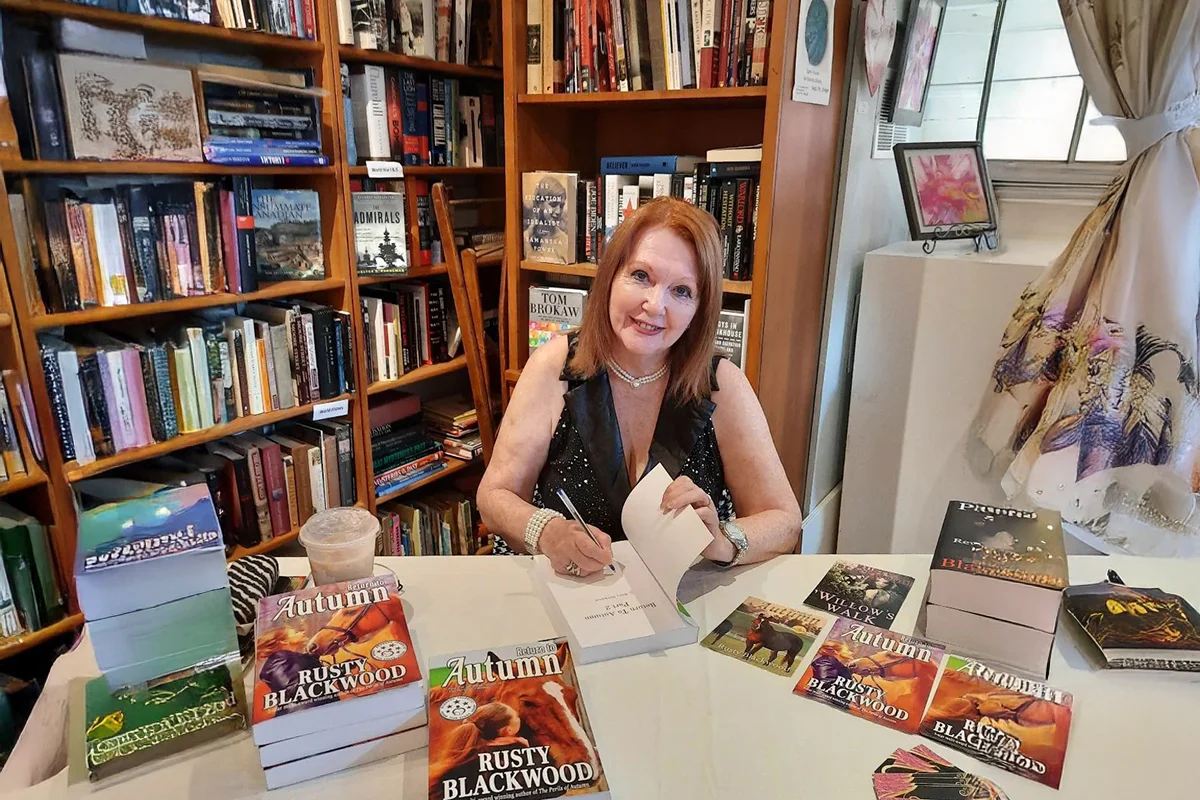PHOTO: Author Leonce Gaiter—master of emotionally resonant, genre-blending narratives that explore race, power, and personal transformation with cinematic precision.
Exploring Identity, History, and Power Through Emotionally Charged Narratives
Leonce Gaiter discusses how his transient upbringing, love of jazz, and Southern roots shape his genre-defying novels, blending history, noir, and emotional depth to explore race, identity, and personal power.
Leonce Gaiter is a master of immersive storytelling, known for crafting emotionally charged narratives with a cinematic edge. His work pulses with rhythm—drawing on jazz, noir, history, and psychological nuance to tackle themes of race, identity, and power. With a creative background that spans literature, film, music, and even tech, Gaiter’s prose blends intellectual sharpness with raw emotional depth. Through novels like I Dreamt I Was in Heaven – The Rampage of the Rufus Buck Gang, Bourbon Street, and In the Company of Educated Men, he reimagines moments in history with fearless precision and a haunting sense of place.
His latest work, A Memory of Fictions (or) Just Tiddy-Boom, fuses memoir and fiction into a bold, kaleidoscopic narrative. Gaiter leans into the unreliability of memory, building a coming-of-age story that spans the civil rights era through the Reagan years. The result is a lyrical and emotionally rich tale that explores personal and cultural transformation with the same improvisational spirit as jazz—a form that deeply influences his storytelling style.
Leonce Gaiter is a fearless, visionary writer whose bold voice redefines historical fiction through emotional complexity, cultural richness, and unforgettable characters.
Raised as an “army brat,” Gaiter reflects on how a transient childhood shaped his worldview and writing. Constantly moving in the racially tense landscape of 1960s America left him with a persistent sense of rootlessness and the need to create safety and belonging. His characters mirror that need, navigating unstable environments and often using violence as one of the few tools they’ve inherited. His Southern heritage, especially the rich and gothic culture of New Orleans, further deepens his work. “I write larger-than-life characters often in life-and-death situations,” he explains, “and most of them are trying to rewrite the worlds they live in—upend the established order.”
In Bourbon Street, Gaiter channels that spirit into a gritty homage to film noir, drawing inspiration from the streets of New Orleans and writers like Jim Thompson and Patricia Highsmith. The setting becomes an extension of the characters themselves—moody, atmospheric, and electric. For Gaiter, place and person are intrinsically linked. “You might say my characters project the world around them,” he says. “The characters and the world they inhabit reflect and feed off each other.”
Rather than focusing on strict historical accuracy, Gaiter prefers to conjure a distinct emotional and cultural sense of a given era. He’s not interested in parading facts; he’s more concerned with how characters live within a moment in time. “When I write Black characters, I don’t write about them being Black,” he clarifies. “I write characters who are Black. And those Black characters assume power.” His protagonists don’t struggle to prove worthiness—they wield power with a righteous urgency, refusing to be defined by systems that seek to constrain them.
Despite dabbling in film and tech, Gaiter distances his literary voice from the technological sphere. While his writing has been described as “cinematic,” it resists easy adaptation, perhaps because its power lies in what only the written word can capture. The influence of classic Hollywood storytelling is there, but it’s filtered through language and form that stretch beyond the boundaries of screenwriting.
Ultimately, Gaiter wants his readers to be entertained—but also challenged. He aims to immerse them in unfamiliar yet compelling worlds, filled with unforgettable characters operating in complex moral landscapes. “I hope they take from my work the memory of unique characters sprayed on a larger-than-life canvas,” he says.
Leonce Gaiter’s fearless literary voice stands as a vital force in contemporary fiction—disrupting expectations, elevating character over convention, and illuminating the unresolved tensions of history and humanity.
This article was adapted from an interview with Leonce Gaiter in the latest issue of Reader’s House.











